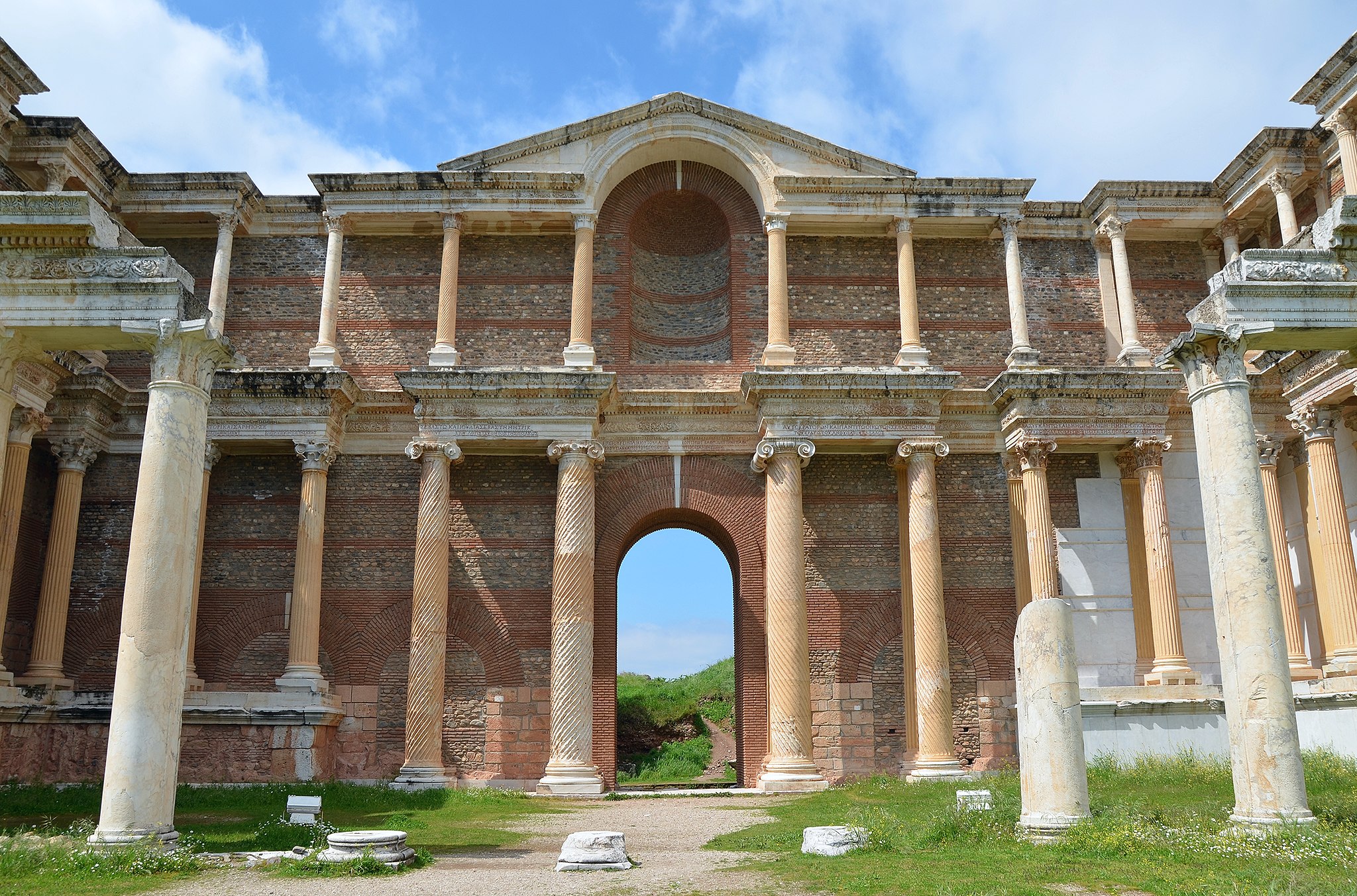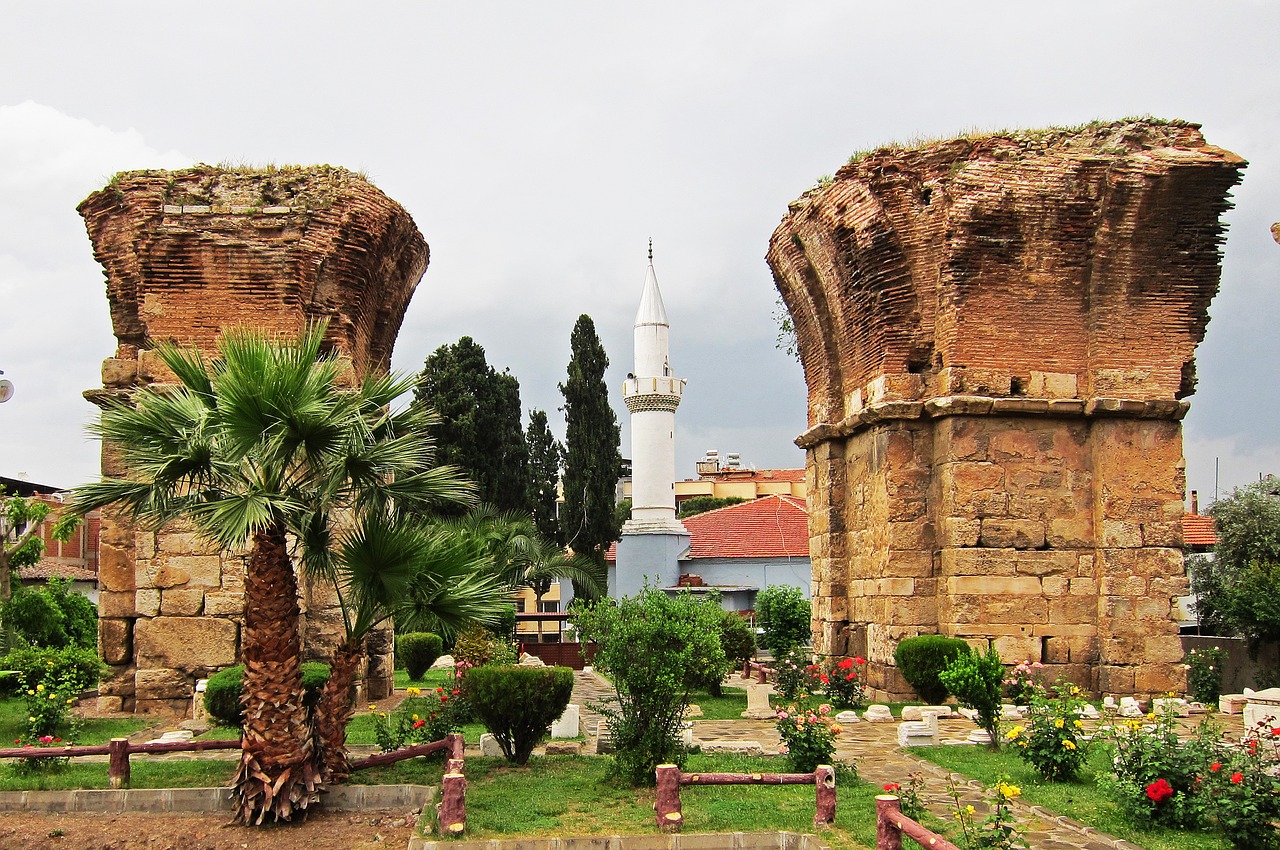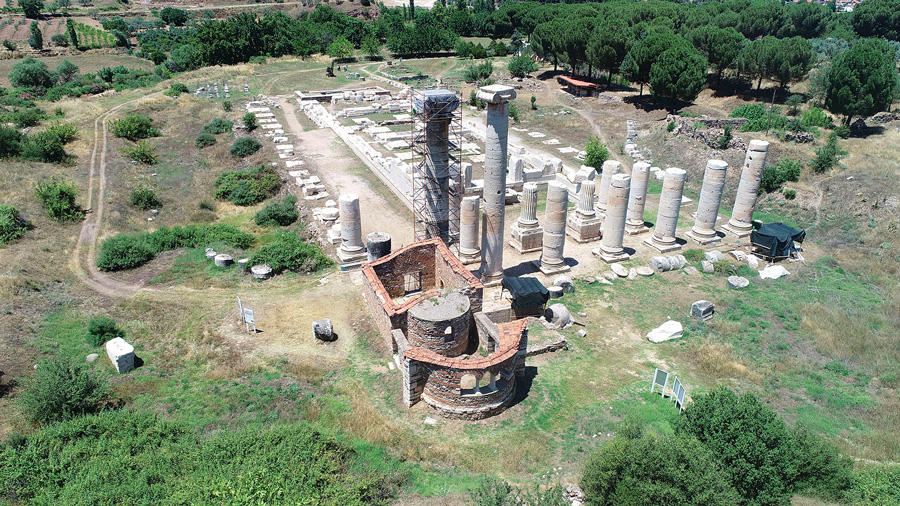While some have interpreted a symbolic meaning to the Bible passage, what’s certain is that these churches did actually exist as buildings.In the first Chapter of the Book of Revelation, John is told to write down God’s words and send it out to the “seven churches of Asia” also known as the Seven Churches of Revelation: Ephesus, Pergamos, Thyatira, Smyrna, Sardis, Laodice and Philadelphia:
I was caught up in spirit on the Lord’s day and heard behind me a voice as loud as a trumpet, which said, “Write on a scroll what you see and send it to the seven churches: to Ephesus, Smyrna, Pergamum, Thyatira, Sardis, Philadelphia, and Laodicea.”
The word “churches” was intended to mean “communities,” rather than just the physical buildings where people attended services. John acts as the messenger of God, writing down words of warning, praise or admonition for each of them.
Some commentators such as American theologian Cyrus Ingerson Scofield have interpreted the seven churches to represent seven different periods in the history of the Western Church, hinting at the fact that the admonitions and predictions actually represent seven prophecies about the spiritual history of the Church. Others have criticized this interpretation, arguing that it does not take into account the different history of the Eastern Orthodox Church after the period of the early councils when the two fractions were still united.
What’s sure is that the famous “seven churches” did actually exist as buildings where their communities worshiped, on top of being literary symbols for less tangible concepts. And the impressive ruins of three of them — Sardis, Philadelphia and Thyateira — can be visited in the region of Manisa, in modern day Turkey.
- Sardis Church, Salihli district, Manisa Province, Turkey
Sardis was the capital of the ancient kingdom of Lydia and was a strategic city to connect the interior of Anatolia with the Aegean coast. But by the time that the Book of Revelation was written, the once mighty city was sliding into decay. Unlike the other six churches that John warns about tangible threats, the inhabitants of Sardis are invited to reflect on their own passive attitude as possible source of danger. “You are dead!” is written in the first verse of the letter to Sardis (Revelation 3:1-6), referring to the lack of enthusiasm for congregation and spirituality. God, by means of John, warns Sardis’ people to “Wake up” and “Strengthen what remains and is about to die.”
Sardis Church, Salihli district, Manisa Province, Turkey
- Philadelphia Church, Alasehir district, Manisa Province, Turkey
Also known as Alaşehir, the city of Philadelphia (from the Greek Φιλαδέλφεια, which means “the city of him who loves his brother”) was an important center in the Early Christian and Byzantine periods and remained important for the Orthodox community up until the 20th century. The church of Philadelphia was one of the two communities (the other was Smyrna) that was spared from criticism in the Book of Revelation. God’s words (Revelation 3:7-13) acknowledge that the congregation had some weakness, yet they remained faithful despite turbulent times. “I know that you have little strength, yet you have kept my word and have not denied my name,” he says. And because of this, Philadelphians are promised an “open door” of blessing.
Philadelphia Church, Alasehir district, Manisa Province, Turkey - Thyatira, modern day Akhisar, Manisa Province, Turkey
Thyatira was an important textile trade center due to its strategic location along the trade route that connected Pergamum, Smyrna and Laodicea, which were important producers of wool, linen and fabric dyes. In the Book of Revelation (Revelation 2:18-29) it is written that the people of Thyatira are behaving rightly, but that they should no longer tolerate the deeds of “Jezebel,” a woman who called herself a priestess but was accused to drive believers into sexual immorality. “I know your deeds, your love and faith, your service and perseverance, and that you are now doing more than you did at first.” God says through the writing of John. “Nevertheless, I have this against you: You tolerate that woman Jezebel, who calls herself a prophet.” Jezebel was most likely a pseudonym alluding to the Old Testament Jezebel, a queen notorious for rejecting Israel’s God.
Thyatira, modern day Akhisar, Manisa Province, Turkey








